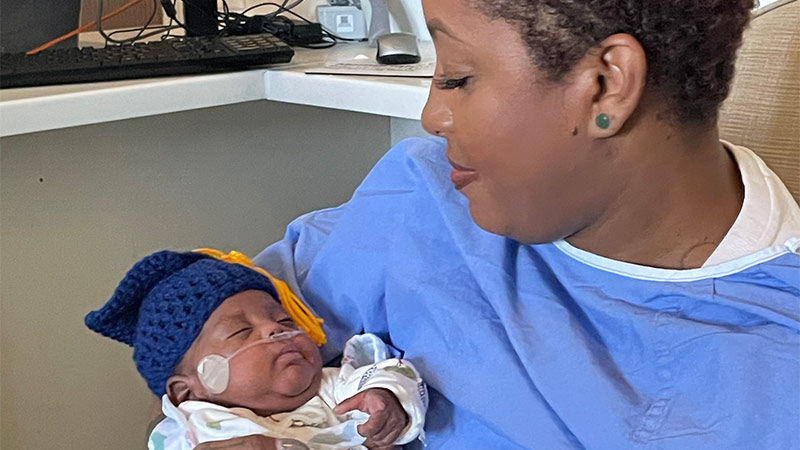Within our NICU’s Small Baby Unit, we have a Tiny Baby Program dedicated to micro-preemies. These babies are born less than 28 weeks gestation (full term is 40 weeks) or weighing less than 1,000 grams (2.2 lbs.).
Micro-preemies tend to experience lower oxygen levels at birth and difficulty breathing, inabilities to maintain or regulate body temperature, difficulties with feedings and gaining weight, and higher rates of breathing, gastrointestinal (GI), or neurological issues. We have a highly trained, multidisciplinary team of physicians, nurses, clinicians, and therapists dedicated to serving the unique needs of these incredibly premature newborns.
The environment within the Small Baby Unit was created to be developmentally appropriate for these babies. A mother’s womb provides a warm and dark environment for a baby to grow, so even full-term babies take time to transition to life outside of the womb. Since these micro-preemies haven’t had a chance to fully develop, the Small Baby Unit’s lights and sounds are hushed. This approach mimics the womb and aids in the baby’s growth.
Video Gallery
Advance to see Spanish versions of the videos.
Conditions
During pregnancy, a baby meets growth and development milestones each week. When a baby is born prematurely, they are more likely to experience health problems because they did not spend a full 40 weeks in the womb. Since the baby had less time in the womb, they may have some medical conditions that need to be taken care of in a neonatal intensive care unit (NICU).
Centers & Programs
We're one of 22 hospitals in California to feature a regional Level IV NICU, which is the highest designation available by the American Academy of Pediatrics. This means we have advanced capabilities, along with skilled specialists, to care for sick and critically ill, and premature babies. We treat nearly 1,200 critically ill and premature babies each year.












